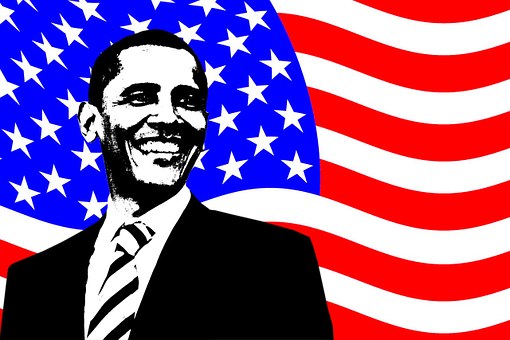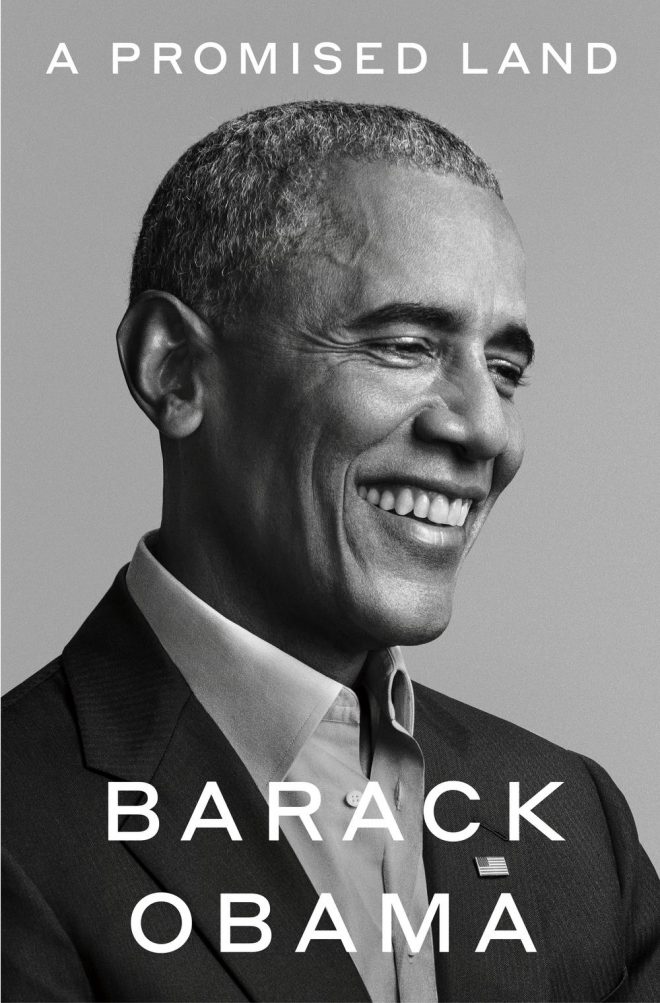

After witnessing the carnage caused by the Trump administration, the 701-page first instalment of A Promised Land, Obama’s presidential memoirs, seems like a gift from what was, in retrospect, a golden age; an age in which the President took advice and made a serious effort to communicate complex ideas.
To a non-expert observer such as myself, with his quiet dignity and excellent oratorial skills, Obama seemed predestined to be President. He did have a certain amount of good luck in his political career. In his 2004 Senate run, for example, his Democratic opponent dropped out and the Republican candidate became embroiled in a sex scandal. However, Obama also brought along genuine convictions gleaned from his life experiences, including his family history and his time working as a community organiser. His optimistic view of government – that it can improve the lives of citizens – is encapsulated in the title A Promised Land, which is taken from an African-American spiritual and was also referenced by Martin Luther King Jr in his famous 1968 Mountaintop speech. The subtext running through this memoir is the idea that we could change things if we really wanted to.
But as Charles Taylor writes in the Los Angeles Review of Books, “the one thing the first African-American president could not do was appear to be ‘too Black.’” Obama details the racism he encountered throughout his earlier life, including “[b]eing followed around by department store security guards while doing my Christmas shopping” and “[t]he sound of car locks clicking as I walked across a street, dressed in a suit and tie, in the middle of the day.” He continued to experience racism on the campaign trail, including from “potential supporters”, some of whom expressed surprise at Obama’s intelligence – implying that he was “intelligent for a black man.” While out canvassing, the risk of assassination also comes up in conversation with black voters.
Obama is acutely conscious of the example he is setting, and at numerous points he reiterates the basic motivation for his presidential bid: “To help kids get a better education. To help families get healthcare, to help poor countries grow more food – it was that kind of power I measured myself against.” To bolster his credibility on the world stage, he makes a point of paying the US’s dues to the UN, which are in arrears following the Bush administration. In terms of cultural leadership, he also did things differently. Due to the global financial crisis, the Obamas refused to expend energy pursuing the traditional First Family pastime of remodelling the White House décor. Instead, the First Lady created a vegetable patch on the grounds of the White House, which eventually yielded so much produce that a substantial amount could be given to charity.
Amidst the historic moments, such as the marathon negotiations for his healthcare bill, the memoir contains numerous immensely moving “small” details. He recounts his appreciation for the White House’s gardens and the work of its groundskeepers, many of whom are Black. One of the oldest, Ed Thomas, had worked at the White House for forty years, and tells Obama that he “might stay on as long as you’re here.” Later, one of the senior butlers, also a Black man, tells him and the First Lady that they “‘don’t really know what this means to us, Mr President. Having you here…’ He shook his head. ‘You just don’t know.’”
Obama doesn’t skip over the moral conundrums that he faced. Indeed, his capacity for self-reflection is one of the standout features of A Promised Land. He discusses the development of policy and legislation at length, and the compromises he had to make due to the refusal of the Republicans to show any degree of bipartisanship. He also frankly discusses the self-interest of some Democrats, such as those who were not on board with elements of his original healthcare bill because big pharma operates in their constituencies.
He also remains conflicted on the killing carried out on his orders. Early on in his presidency, a cargo ship captained by an American was hijacked by Somali pirates. After five days, Navy SEAL snipers killed the pirates and freed the captain. Reflecting on this episode, he acknowledges that “around the world, in places like Yemen and Afghanistan, Pakistan and Iraq, the lives of millions of young men like those three dead Somalis… had been warped and stunted by desperation, ignorance, dreams of religious glory, the violence of their surroundings, or the schemes of older men.” He laments that it would have been more constructive to “send them to school, give them a trade, drain them of the hate that had been filing their heads,” but “the machinery [he] commanded, more often had [him] killing them instead.”
A similar sentiment is repeated after bin Laden is killed by a US Navy SEAL strike in Abbottabad in May 2011. Reflecting on the “sense of common purpose” the mission to kill bin Laden had generated, Obama “found [himself] imagining what America might look like if we could rally the country so that our government brought the same level of expertise and determination to educating our children or housing the homeless.” An execution is nothing if not an appeal to base instincts; following bin Laden’s death there were spontaneous celebrations around the country, with revellers chanting “USA! USA!”
There is not a great deal of difference between “USA! USA!” and “Make America Great Again.” It is through such moments the reader glimpses the travesty that was to follow the Obama administration. By his own admission, Obama couldn’t connect to the voters who would go on to vote for Trump. He continues to castigate himself for an off-the-cuff comment about gun control, which further alienated him from this demographic. He formulates a “revised version” which he would have liked to say instead:
‘So it’s not surprising then that they get frustrated,’ I would say in my revised version, ‘and they look to the way of life and traditions that have been constants in their lives, whether it’s their faith, or hunting, or blue-collar work, or more traditional notions of value and community. And when Republicans tell them we Democrats despise these things – or when we give these folks reason to think that we do – then the best policies in the world don’t matter to them.’
But as David Runciman points out in the London Review of Books, the tone of this hypothetical revision remains condescending. This is one of Obama’s weaknesses – not all voters’ sentiments can be intellectualised or captured by an appeal to “rationality.” Healthcare is a key example: Obama recounts his frustration about the opposition to his healthcare bill in the “deep-red Republican district[s]” of the south, where people nevertheless queue up before sunrise for pop-up medical clinics offering free services. Michelle Obama also takes notes of this, saying incredulously to the President “It’s a trip [that] [t]hey’re scared of you. Scared of us.”
For a political memoir, A Promised Land strikes a constructive balance between idealism, score settling, behind the scenes glimpses of key decision making, and Obama’s home life and motivations. It also inspires a rethink of the relationship between political style and substance. Pre-Trump, I was deeply skeptical of the value of political memoirs, and of media efforts to go behind the scenes to find the “real” person behind the politician. With spin being an entrenched feature of the contemporary political landscape and candidates coached on all aspects of their image, I did not think it would be possible to sift style from substance. But for both Obama and Trump, their styles reveal, rather than obscure, their substance. Trump’s general demeanour resembles that of an overgrown, spoilt child, and this impression was more than borne out by his preference for tweeting over serious discussions, his devotion to reality television, and his administration’s whole-hearted embrace of “alternative facts.” In stark contrast, Obama’s intellectualism, eloquence, empathy, vision, and attention to detail highlighted his ability to inhabit the role; a style that could easily be described as “presidential.” Sometimes, what you see is what you get.

